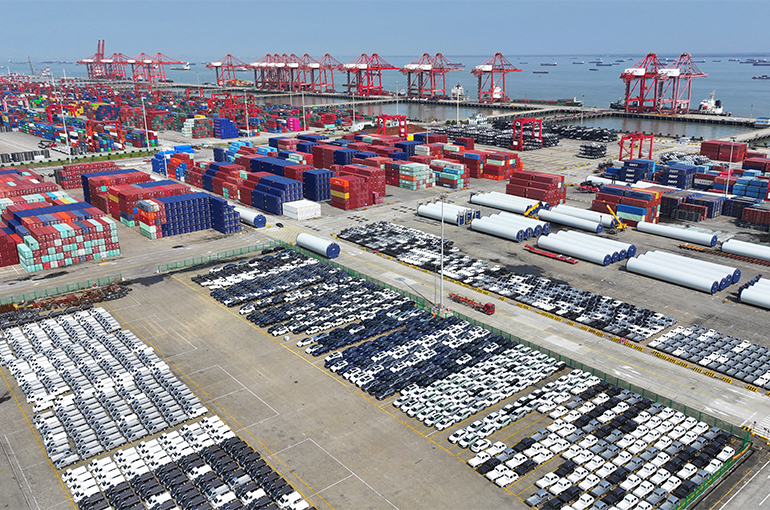 China Firmly Opposes U.S. Tariff Hikes on Chinese Goods
China Firmly Opposes U.S. Tariff Hikes on Chinese Goods(Yicai) Sept. 16 – China is strongly dissatisfied with and firmly opposes U.S. abuse of Section 301 to hike tariffs on some Chinese goods, the Ministry of Commerce said over the weekend.
The Office of the United States Trade Representative on Sept 13th announced final modifications concerning the statutory review of the tariff actions toward China under Section 301.
China has repeatedly lodged solemn representations with the U.S. side concerning the Section 301 tariffs, said a spokesperson for the ministry in a statment.
The move is a typical practice of unilateralism and trade protectionism, said the spokesperson, adding that it seriously undermines the international trade order, as well as the security and stability of global industrial and supply chains.
Moreover, the move not only fails to solve the United States' own problems concerning trade deficits and industrial competitiveness, but also pushes up prices of U.S. imports and forces U.S. companies and consumers to bear the additional costs.
The United States Trade Representative's Office’s decision, which not only did not reduce the additional tariffs on imported electric vehicles, lithium batteries, photovoltaic cells, critical minerals, semiconductors, as well as steel, aluminum, port cranes, personal protective equipment, and other products from China, but also once again increased the additional tariffs on products such as masks, medical gloves, needles, and syringes. At the same time, it proposed to include tungsten, wafers, and polysilicon products in the scope of additional tariffs.
Luo Jie, an experienced industry insider told Yicai that the majority of cargo volumes on the U.S. routes are daily consumer goods, home appliances, furniture, electronic products, plastic products, toys, machinery, auto parts, and so on.
Luo noticed that, new policies will affect the future of U.S - China's export industries. In the case of solar panels, the U.S. has already forced Chinese companies to set up factories in the U.S. through tariffs and other measures. Most of the solar panels on the U.S. market are now imported from Vietnam or Thailand, with very few being directly imported from China.
He told Yicai that, since last year, thousands of containers from Chinese companies have been detained at U.S. ports, with the companies potentially paying millions of dollars in demurrage fees at the docks. As far as he knows, some raw material suppliers for solar panels have already started to transport materials from Vietnam to the U.S. for assembly.
Chinese companies in the electric vehicle, lithium battery, photovoltaic cell, and related industries have been deeply cooperating with businesses from various countries, including the United States, on the basis of mutual respect, equality, and mutual benefit. They continuously carry out technological innovation, actively promote international cooperation in industrial and supply chains, and contribute to global green and low-carbon development,, according to the statement from China Council for the Promotion of International Trade (CCPIT).
However, the U.S. side continues to adhere to the wrong approach, disregarding the opposition from the business communities of both China and the United States to the imposition of additional tariffs, and refuses to fulfill the tariff reduction commitments made by the United States at the World Trade Organization. This unilateral measure, which clearly violates WTO rules, will severely affect the confidence in long-term stable cooperation between related industries of China and the United States and will have a negative impact on global industrial and supply chain cooperation. The Chinese business community firmly opposes this, the council said.
Editor:Chen Juan